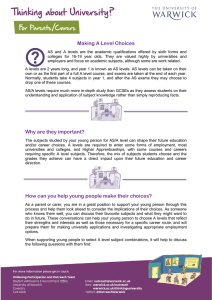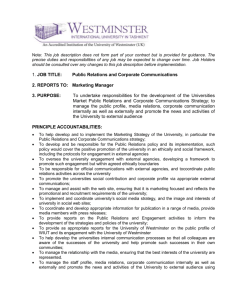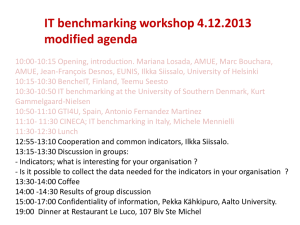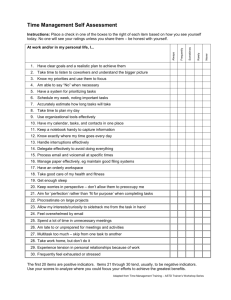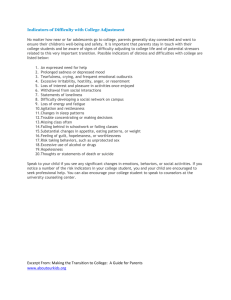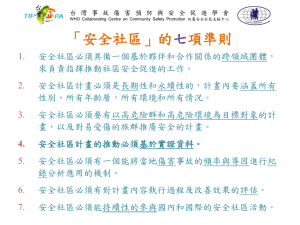What is interesting for your organisation? Group work
advertisement
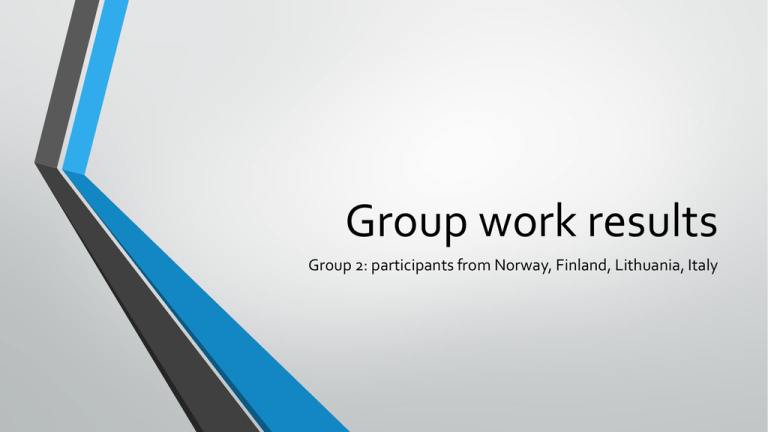
Group work results Group 2: participants from Norway, Finland, Lithuania, Italy • • • • Indicators Technical • • Basic measures: e.g. Workstations Also: Level of virtualization in workstations, Financial • • Mandatory Dangerous to measure the costs only Indicators for measuring the outcomes • Efficiency of learning and research: amount of e-learning, number of published data sets Hot topics for universities • • • • E.g. digital exams are hot right now How much a LMS is improving efficiency Improving visibility to license costs HR: salary levels against the private sector, turnover figure Why are we doing this • Main goal: to make universities more efficient and effective • Knowing your own data, especially in the distributed part of IT • Selling the selected IT approach to the rector (e.g. what is the right cost level, what are the right services) • Understanding what others are doing: finding the differences • Partnership opportunities: what tools others are using • Related questions: • • How do you convince universities to show their data to others What tangible improvements have been implemented through benchmarking The process • • • • The process needs to be fast enough to accommodate emerging new needs (recent example: digital exams) The result: continuous process: new indicators coming in every year, old ones being dropped out Requirements fall into three categories • • • There is a need for core data (exchangeable across countries and stable over time) There is a need for a customized part for every country There is a need for an agile approach Several layers for co-operations • • • Central tool to be used by all for automating the basic work (e.g. kTI) Each country to implement its own additional elements (with/without the tool) European level: EUNIS on a voluntary basis • • Chance to meet on a yearly basis Possibility to transform the work into a European project
